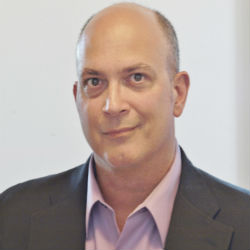 Greg Faherty, CPRW, A Perfect Resume.
Greg Faherty, CPRW, A Perfect Resume.
Greg brings 11 years of professional resume writing experience to the table.
His accomplishments include producing 9,000-plus resumes, writing for newspapers and websites, and introducing cutting-edge document formats to the industry.
1. What led you to write resumes? Do you have a background that made you an ideal fit for the industry?
Greg: Before I began doing it as a profession, I was doing it as a side business for friends.
That stemmed from me always getting better results from the resumes I wrote for myself than those that I had professionally prepared.
Then, when I found myself downsized from a company, I responded to an ad for a resume writer with an online firm.
That led to my getting certified and starting my own business a year later.
2. Now that you’ve been in the industry for a while, would you recommend it to others? Why?
Greg: No, I wouldn’t.
Not because it isn’t a rewarding job; it is.
I love working for myself and doing something I enjoy.
But the field is getting saturated by people who believe that ‘anyone’ can write a resume.
The fact is, if you are not really, really good at building effective career documents for people, then you will not only be wasting your clients’ money but also your own, because eventually, your business won’t succeed.
Also, these fly-by-night resume firms give the entire industry a bad name.
Having a background in HR isn’t enough; you need to have an exceptional understanding of grammar, punctuation, and vocabulary.
You need to be visually oriented to create eye-catching resumes that at the same time aren’t using graphics that will hinder how databases read them.
And most importantly, you need to have the discipline and capability to succeed in a self-employed or small business model, which is a lot different than working for someone.
3. What is the single best tool you recommend for building client relations? Building your business? Improve efficiency?
Greg: Be pleasant on the phone.
Utilize SEO techniques for your website.
And, treat your business like a business.
4. If you could share one learning experience/great lesson, what would it be?
If you can’t handle the financial ups and downs of the business, it’s better to look for work elsewhere.
5. Looking back, what would you have done differently? Done the same?
Differently?
Probably building my SEO strategies earlier.
The same?
Everything else that I’ve done.
6. What advice would you give someone just entering the resume-writing industry?
It’s like anything else.
You will only succeed if you work hard and constantly adapt to the changes.
Keep up with trends and continuing education.
Track what works and what doesn’t.
Learn from your peers.
And above all, commit yourself to providing the highest quality of work at all times.
7. How do you see our industry transforming over the next 12 months? 5 years? What do think resume writers need to know in order to survive?
One of the big changes I see coming over the next 5 years or so will be a shift in how resumes are written.
Better technology will mean that people will be able to incorporate more graphics into resumes.
Technology will also be forcing a lot of people out of jobs through automation, so those individuals will be looking to shift careers, which means resume writers will have to focus more than ever on transferable skills and intangible qualities to make the resumes stand out.
The hardest thing is for small companies and independent writers to compete with big firms who charge $700-$800 for a resume package and then just farm it out to contracted writers.
The client isn’t getting a better quality product, but they believe they are because they think the more they spend, the higher the quality.
Likewise, the cheapie companies charging $69 and $89 for a resume hurt everything because, for the most part, they are delivering a sub-par product, which makes potential clients hesitant to buy resumes.
We as an industry have to govern ourselves and not drive our own industry into the ground.
As long as we continue to provide quality at a reasonable price, there will always be a market for resumes, regardless of the technology involved in creating them.
